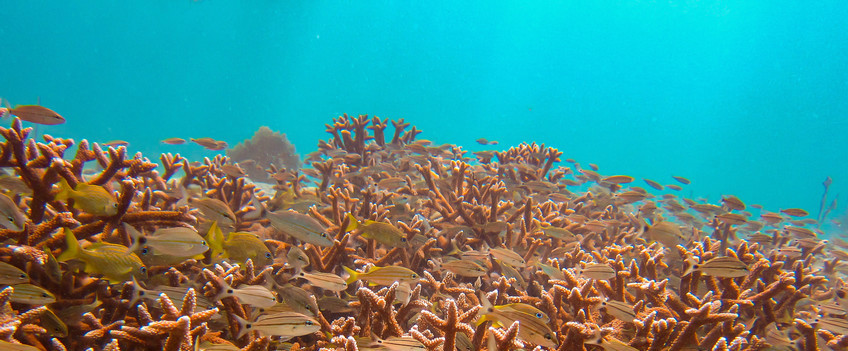
National Coral Reef Institute (NCRI)
The National Coral Reef Institute (NCRI), based at Nova Southeastern University, was created by congressional mandate in 1998 and refunded in 2023 with the mission of ensuring the future of the world’s coral reefs and oceans for the benefit of humanity and nature. NCRI is dedicated to advancing coral reef research through collaboration and coordination, focusing on scientific partnerships and knowledge-sharing to address coral reef challenges. This multidisciplinary group of coral reef researchers has expertise from ecology to biology, genetics, and social science. NCRI conducts research to better understand and address the challenges facing the world’s coral reefs and inform best management practices.
NCRI Research
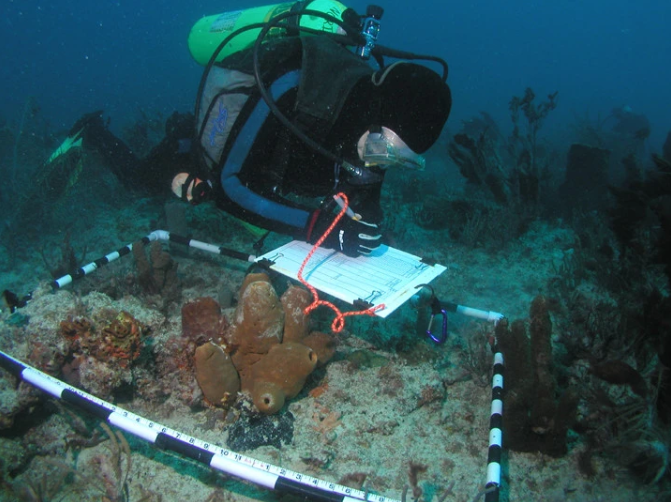
Coral reefs are among the largest, most beautiful living structures on Earth. These diverse ecosystems support a vast array of organisms that depend on coral reefs for habitat, food and shelter. They provide physical barriers to coastal erosion and protection from storm waves and tsunamis. Reefs are also an important economic resource as well as homes for commercially and recreationally important species of fish and a recreational locale for diving and tourism activities.
NCRI aims to conserve and restore the condition of coral reef ecosystems challenged by natural and human-accelerated changes. NCRI does this by conducting research that supports science-based management, sustainable use of coral reef ecosystems, and innovative solutions that benefit local communities and the nation.
The Dynamics of Modern Reefs
Developed in 2025, NCRI operates under a Science Plan that serves as a guiding framework for NCRI’s research initiatives. Drawing on the diverse expertise of NCRI’s coral reef scientists and partners, the plan outlines a unified theme - Dynamics of Modern Reefs - and defines the key scientific questions that shape NCRI’s research.
NCRI scientists work to understand how shifts in community composition have altered coral reef ecosystems and the resulting changes to ecological function, services, stability, and persistence. Coral reefs worldwide are undergoing unprecedented reconfiguration driven by local and global stressors, threatening critical ecosystem services relied upon by hundreds of millions of people. Despite the severity of these impacts, the dynamics of these modern reefs remain poorly understood. By working to understand these patterns and their cascading effects, NCRI supports effective conservation, management, and restoration strategies.
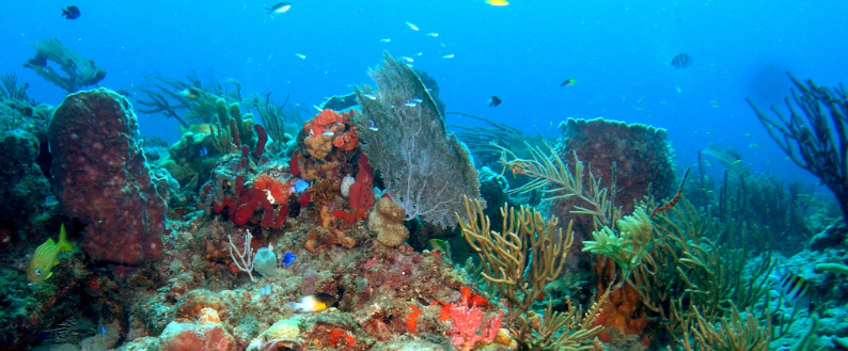
Supporting Natural Resource Management
NCRI's management-oriented research is designed to provide solid information and research products designed to help understand, manage and conserve coral reef ecosystems for generations to come. In addition to research, NCRI strengthens natural resource management through capacity-building initiatives like the Susan L. Williams National Coral Reef Management Fellowship Program and by providing coordination and facilitation services that help bridge the gap between science and decision-making.
Susan L. Willians National Coral Reef Management Fellowship
NCRI has coordinated the Susan L. Williams National Coral Reef Management Fellowship for ten years, a partnership between NCRI, NOAA’s Coral Reef Conservation Program, the U.S. Department of Interior Office of Insular Affairs, and the U.S. Coral Reef All Islands Committee.
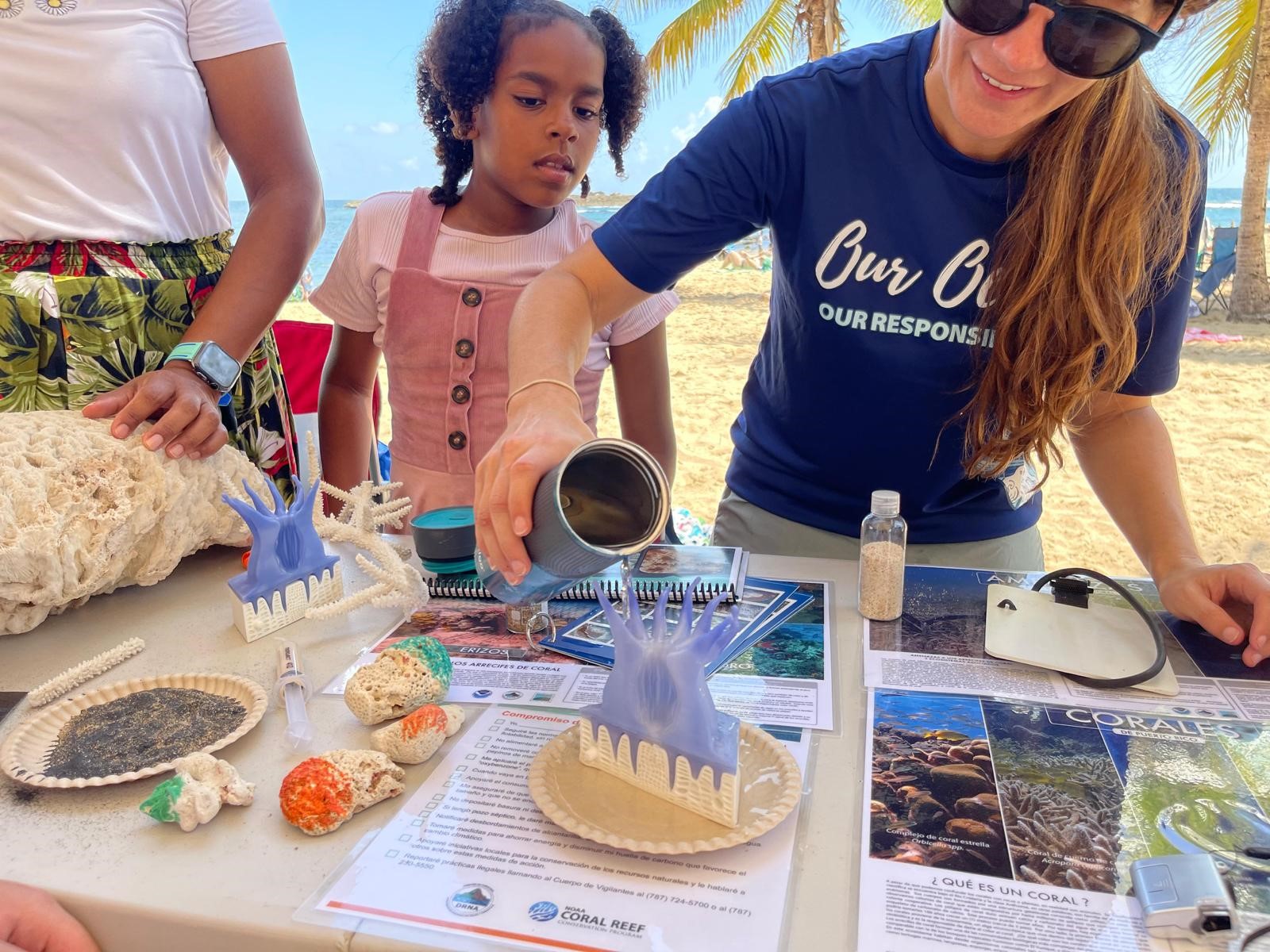
The program recruits Coral Reef Management Fellows for the seven U.S. coral reef jurisdictions to address current capacity gaps and to build longer-term capacity in these locations. This is done by placing highly qualified individuals whose education and work experience meet each jurisdiction’s specific coral reef management needs. The program’s goal is to develop a thriving collaborative fellowship program that builds excellent next-generation leaders and capacity for effective local coral reef ecosystem management.
This collaboration and commitment to the next generation is exemplified through the success of the Fellowship, with 85% of the Coral Fellows remaining in management or research fields upon completion of the Fellowship.
Learn More and Apply for the Fellowship
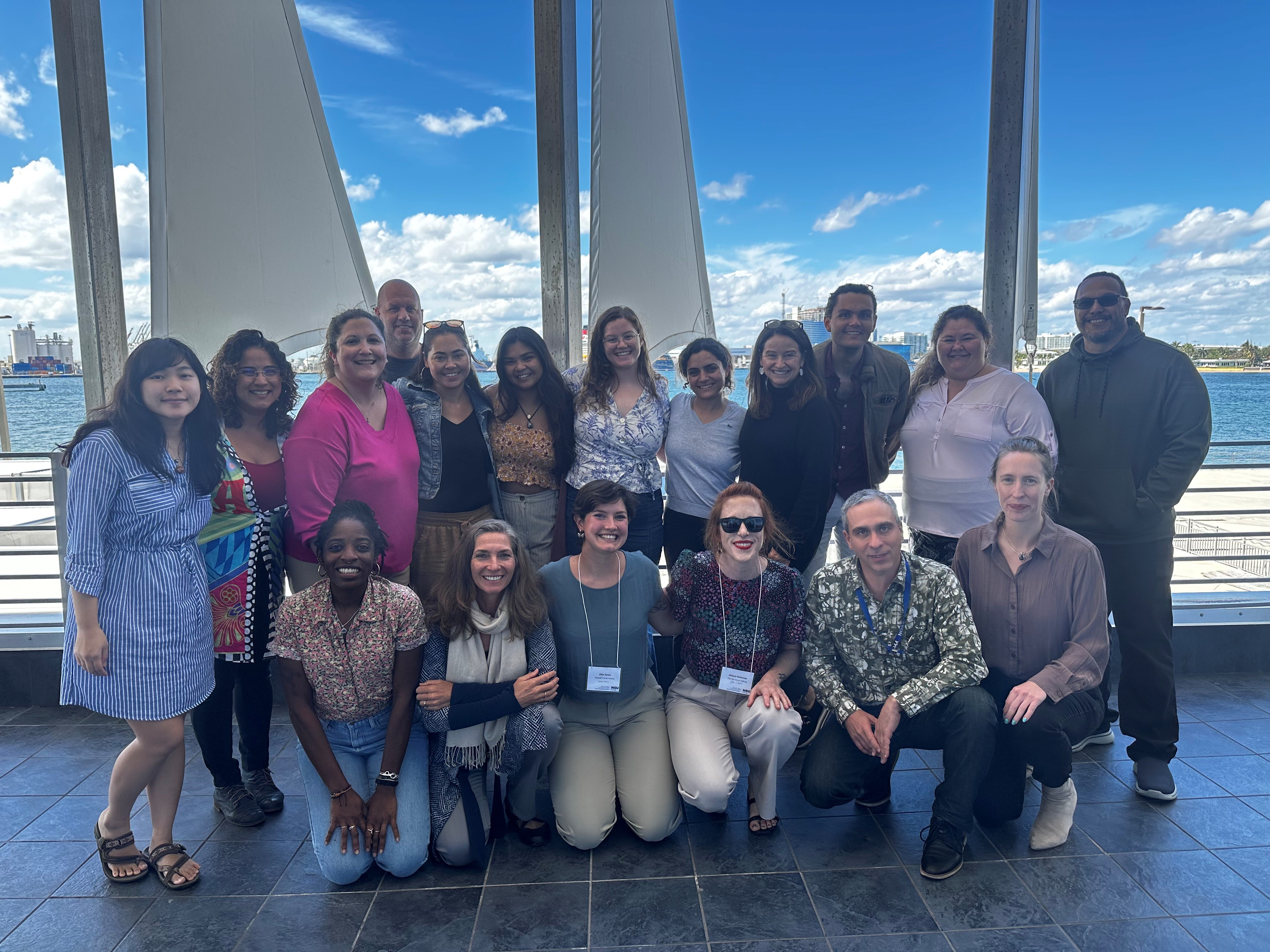
Contact NCRI
National Coral Reef Institute (NCRI)
Nova Southeastern University
8000 North Ocean Drive
Dania Beach, FL 33004
(954) 262-3504
NCRI@nova.edu